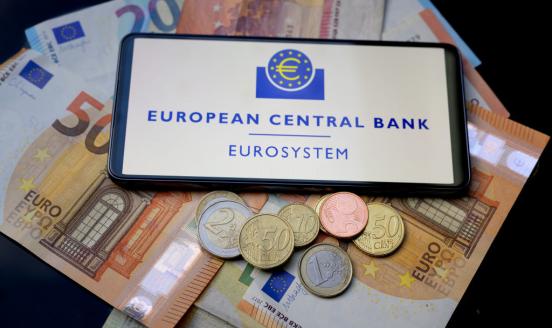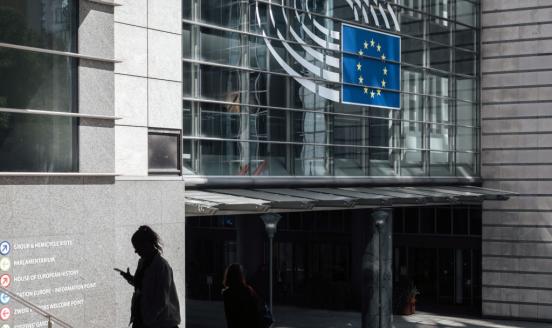Criteria for entry into the ERMII and the banking union: the precedent from Bulgaria
In its bid to join the single currency Bulgaria has made commitments on financial supervision but also wider structural reform which set a precedent f

The Eurogroup in July clarified Bulgaria’s path into the European Exchange Rate Mechanism (ERMII). This will be preceded by a close cooperation with the ECB in the context of the banking union, which in turn will depend on fulfilling a number of commitments on financial sector supervision and structural reform. Once ERMII entry has been agreed there will be no option by other currency union members to veto euro adoption. Bulgaria would then become the first EU country to accede to the economic and monetary union (EMU) since Lithuania did so in 2015.
Following a devastating debt and banking crisis, Bulgaria has successfully operated a currency board since 1997 with a rate irrevocably fixed to the German mark and the euro. It would seem that exchange-rate stability can be easily maintained.
But there have been persistent doubts about the quality of banking supervision in Bulgaria. Membership in the banking union is therefore desirable and has been actively promoted by Bulgaria (see the previous Bruegel research and blog on this topic). Three-quarters of Bulgaria’s banking sector are foreign-owned, but in 2014 the country saw runs on its locally owned third- and fourth-largest banks, and the collapse of the latter. Only last year, indictments were brought against the main owner of that bank, and senior central bank managers.
Common supervision will now be prepared over the coming year, including a stress test of the banks. In addition, Bulgaria has made a number of wide-ranging commitments – including on governance, legal and judicial reforms – which it seeks to implement over the coming months.
These commitments seem desirable in their own right – but which are essential for participation in the banking union, and can they realistically be implemented within the short timeframe that is envisaged? The conditions can be summarised under five headings:
- Strengthen bank and systemic supervision. This is an essential addition to the euro-entry criteria and, in light of Bulgaria’s recent crisis, clearly very relevant. Within Bulgaria’s currency board regime the national bank is experienced in applying ‘macroprudential’ supervision and has already had some success in stemming a credit boom ahead of the financial crisis. The two conditions seem well defined, realistic and desirable for entry into the banking union.
- Strengthen supervision of the non-bank financial sector. It is less clear why this is essential for entry into the banking union, within which a common standard of bank supervision and procedures for bank resolution have been established. As in most new EU Member States, Bulgaria’s non-bank sector is small, accounting for about a quarter of system assets. A recent review flagged problems in the capitalisation of some insurance companies and risks to benefits accruing from pension funds. The supervisor is outside the central bank, and may have failed in some of its tasks. While these are important issues in financial supervision, the relevance for bank soundness and potential resolution costs within the banking union is less clear.
- Strengthen the anti-money laundering framework. This seems a timely and sensible addition to the requirements for banking union membership. As was clear in the recent banking crisis in Latvia, even a hint of operational and conduct risk can have immediate consequences across the banking system. The implementation into law of the latest EU Directive should be straightforward to verify, and could be done swiftly. Empowering the independent financial crimes unit and establishing the information exchange with the supervisor may prove to be more protracted processes.
- Address gaps in the insolvency framework, and strengthen the judiciary. Poor insolvency regimes and inefficient judiciaries are a key reason for the slow pace of non-performing loan (NPL) resolution in many Member States, where provisioning is often inadequate. Different creditor rights and problems with enforcement will limit integration between national financial markets. In the case of Bulgaria, an extensive report flagged a large number of shortcomings relative to best practice in the World Bank’s insolvency standards. The average time to resolve insolvency is over three years, though this is by no means the worst in the euro area. Best practice in insolvency law is easy to define and clearly desirable for a well-functioning and open financial system. But implementation will crucially depend on the reform of the judiciary, which will be much harder to monitor.
- Align legislation with the OECD Guidelines on corporate governance of state-owned enterprises (SoEs). This seems the most ambitious of the conditions, and the one least relevant to membership in the banking union. It sets a high hurdle for other future applicants in emerging Europe with traditionally extensive state sectors, importantly for Croatia as another likely applicant. There is a sizable sector consisting of about 800 state enterprises in Bulgaria, accounting for about 6% of output. This is large, though not necessarily out of line compared to others in the currency union. In its country assessments the Commission has pointed out weak performance in the sector. It does not follow that the state sector poses a direct risk to financial stability, and in fact this issue is scarcely mentioned in the latest IMF assessment. It is no doubt possible to reflect the OECD standards in national legislation in the coming months, but implementation within the administration could be lengthy. For instance, a state-ownership agency will need to be resourced and empowered. Governance practice within enterprises will likely lag such standards for some time.
Bulgaria’s recent banking crisis underlined important shortcomings in financial supervision. This is now to be addressed relatively swiftly, and a full stress test should give further confidence. But since EU accession in 2007 there has been a long history of delayed structural reforms, which the Commission has tracked through its so-called Cooperation and Verification Mechanism.
As the Eurogroup expects to follow a similar approach with other Member States seeking to join ERMII, it should be mindful that structural and governance obstacles to deep financial integration cannot be overcome quickly.



